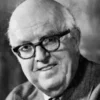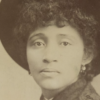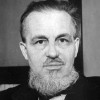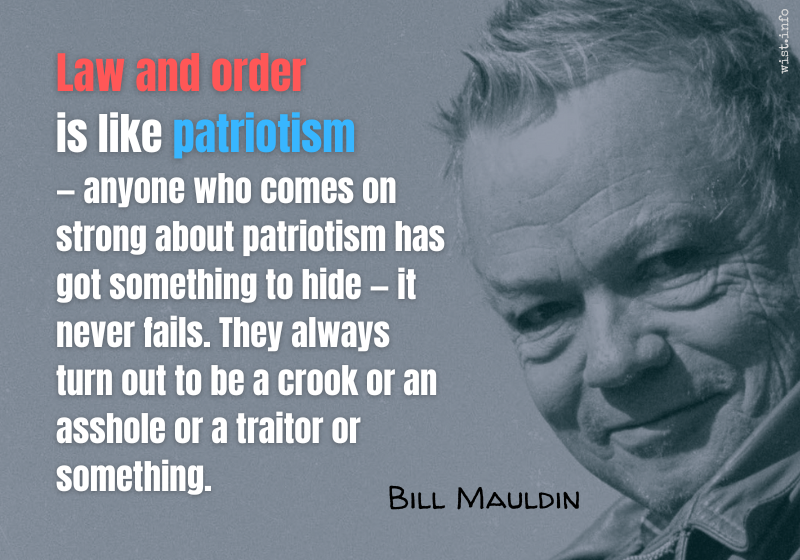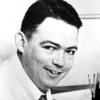When you think of the long and gloomy history of man, you will find that far more, and far more hideous, crimes have been committed in the name of obedience than have ever been committed in the name of rebellion.
C. P. Snow (1905-1980) English novelist, physical chemist, bureaucrat [Charles Percy Snow]
“The Moral Un-Neutrality of Science,” speech, American Association for the Advancement of Science, New York City (27 Dec 1960)
(Source)
Reprinted in Science (27 Jan 1961) and then in Public Affairs (1971).
Quotations about:
law and order
Note not all quotations have been tagged, so Search may find additional quotes on this topic.
We have laws, jails, courts, armies, guns and armories enough to make saints of us all, if they were the true preventives of crime; but we know they do not prevent crime; that wickedness and depravity exist in spite of them, nay, increase as the struggle between classes grows fiercer, wealth greater and more powerful and poverty more gaunt and desperate.
Lucy Parsons (1851-1942) American labor organizer, anarchist, orator [a.k.a. Lucy Gonzalez]
“The Principles of Anarchism,” lecture (1905)
(Source)
Genocide is natural! Rape is natural! No, what’s natural is not necessarily good — often it’s repulsive. One of the most important functions of human society, and the driving force behind most political institutions, is to prevent humans from doing what comes naturally.
Jared Diamond (b. 1937) American geographer, historian, ornithologist, author
“Choosing Success,” interview by Catherine Seip, National Review (30 Jun 2006)
(Source)
To suffer the civil magistrate to intrude his powers into the field of opinion and to restrain the profession or propagation of principles, on the supposition of their ill tendency, is a dangerous fallacy, which at once destroys all religious liberty, because he being of course judge of that tendency, will make his opinions the rule of judgment, and approve or condemn the sentiments of others only as they shall square with or differ from his own.
Thomas Jefferson (1743-1826) American political philosopher, polymath, statesman, US President (1801-09)
“Virginia Statute for Religious Freedom” (18 Jun 1779; enacted 16 Jan 1786)
(Source)
[The first principle of British democracy is] our prime duty to each other and to what our conscience tells us to be right. If this leads individuals into conflict with the law, those individuals must be ready to take the consequences non-violently. In our democracy no man should tell another man to break the law, nor should any man break the law to by-pass Parliament. But a person who is punished for breaking an unjust law may if he is sincere and his cause wins public sympathy, create a public demand to have that unjust law changed through Parliament. This is the first and most fundamental principle of British democracy. It has a deep moral significance. Our religious and political liberties rest upon it.
Fascist law-and-order rhetoric is explicitly meant to divide citizens into two classes: those of the chosen nation, who are lawful by nature, and those who are not, who are inherently lawless. In fascist politics, women who do not fit traditional gender roles, nonwhites, homosexuals, immigrants, “decadent cosmopolitans,” those who do not have the dominant religion, are in their very existence violations of law and order. By describing black Americans as a threat to law and order, demagogues in the United States have been able to create a strong sense of white national identity that requires protection from the nonwhite “threat.”
Jason Stanley (b. 1969) American philosopher, epistemologist, academic
How Fascism Works: The Politics of Us and Them, ch. 7 (2018)
(Source)
However fiercely opposed one may be to the present order, an old respect for the idea of order itself often prevents people from distinguishing between order and those who stand for order, and leads them in practise to respect individuals under the pretext of respecting order itself.
Antonin Artaud (1896-1948) French playwright, actor, director
Letter to André Gide (10 Feb 1935)
(Source)
Therefore he who bids the law rule may be deemed to bid God and Reason alone rule, but he who bids man rule adds an element of the beast; for desire is a wild beast, and passion perverts the minds of rulers, even when they are the best of men. The law is reason unaffected by desire.
Aristotle (384-322 BC) Greek philosopher
Politics [Πολιτικά], Book 3, ch. 16 / 1287a.32 [tr. Jowett (1885)]
(Source)
Alternate translations:
- "He, therefore, who wishes Law to govern seems to wish for the rule of God and Intellect alone; he who wishes men to rule bring sin the element of the animal. For appetites are of this lower nature, and anger distorts the judgment of rulers, even of the best. And so Law is Intellect without animal impulses." [tr. Bolland (1877)]
- "Moreover, he who would place the supreme power in mind, would place it in God and the laws; but he who entrusts man with it, gives it to a wild beast, for such his appetites sometimes make him; for passion influences those who are in power, even the very best of men: for which reason law is reason without desire." [tr. Ellis (1912)]
- "He therefore that recommends that the law shall govern seems to recommend that God and reason alone shall govern, but he that would have man govern adds a wild animal also; for appetite is like a wild animal, and also passion warps the rule even of the best men. Therefore the law is wisdom without desire." [tr. Rackham (1932)]
- "One who asks law to rule, therefore, is held to be asking god and intellect alone to rule, while one who asks man adds the beast. Desire is a thing of this sort; and spiritedness perverts rulers and the best men. Hence law is intellect without appetite." [tr. Lord (1984)]
Society is only incidentally and in certain cases regulative, and law is no equivalent to the social order. […] Even in our civilization the law is never more than a crude implement of society, and one it is often enough necessary to check in its arrogant career. It is never to be read off as if it were the equivalent of the social order.
Ruth Benedict (1887-1947) American anthropologist
Patterns of Culture, ch. 8 “The Individual and Culture” (1934)
(Source)
Oh dear, I’m feeling political today. It’s just that it’s dawned on me that “zero tolerance” only seems to mean putting extra police in poor, run-down areas, and not in the Stock Exchange.
Let us shun extremes, not only because each extreme is in itself a positive evil, but also because each extreme necessarily engenders its opposite. If we love civil and religious freedom, let us in the day of danger uphold law and order. If we are zealous for law and order, let us prize, as the best safeguard of law and order, civil and religious freedom.
Thomas Babington Macaulay (1800-1859) English writer and politician
Speech on re-election to Parliament, Edinburgh (2 Nov 1852)
(Source)
It’s a police mantra that all members of the public are guilty of something, but some members of the public are more guilty than others.
If there is no willingness to use force to defend civil society, it’s civil society that goes away, not force.
Teresa Nielsen Hayden (b. 1956) American editor, writer, essayist
Making Light, “Commonplaces”
(Source)
I think the detective story is by far the best upholder of the democratic doctrine in literature. I mean, there couldn’t have been detective stories until there were democracies, because the very foundation of the detective story is the thesis that if you’re guilty you’ll get it in the neck and if you’re innocent you can’t possibly be harmed. No matter who you are. There was no such conception of justice until after 1830. There was no such thing as a policeman or a detective in the world before 1830, because the modern conception of the policeman and detective, namely, a man whose only function is to find out who did it and then get the evidence that will punish him, did not exist. … In Paris before the year 1800 — read the Dumas stories — there were gangs of people whose business was to go out and punish wrongdoers. But why? Because they had hurt De Marillac or Richelieu or the Duke or some Huguenot noble, not just because they had harmed society. It is only the modern policeman that is out to protect society.
A rioter with a Molotov cocktail in his hands is not fighting for civil rights any more than a Klansman with a sheet on his back and a mask on his face. They are both more or less what the law declares them: lawbreakers, destroyers of constitutional rights and liberties, and ultimately destroyers of a free America.
Lyndon B. Johnson (1908-1973) American politician, educator, US President (1963-69)
Speech (1965-08-20), White House Conference on Equal Employment Opportunity, Washington, DC.
(Source)
Discussing the Watts Riots in Los Angeles (11-16 August).
It is more important that innocence be protected than it is that guilt be punished, for guilt and crimes are so frequent in this world that they cannot all be punished. But if innocence itself is brought to the bar and condemned, perhaps to die, then the citizen will say, “whether I do good or whether I do evil is immaterial, for innocence itself is no protection,” and if such an idea as that were to take hold in the mind of the citizen that would be the end of security whatsoever.
John Adams (1735-1826) American lawyer, Founding Father, statesman, US President (1797-1801)
(Attributed)
Cited in some cases as the closing argument while defending the British Soldiers accused of killing 5 colonists in the "Boston Massacre" (usually given as "Argument in Defense of the Soldiers in the Boston Massacre Trials" (Dec 1770)), but I did not find it in accounts of that defense.
We have solved, by fair experiment, the great & interesting question Whether freedom of religion is compatible with order in government and obedience to the laws; & we have experienced the quiet as well as the comfort which results from leaving every one to profess freely & openly those principles of religion which are the inductions of his own reason, & the serious convictions of his own enquiries.
Thomas Jefferson (1743-1826) American political philosopher, polymath, statesman, US President (1801-09)
Letter to Va. Baptist Associations of Chesterfield (21 Nov 1808)
(Source)
Extreme law is often extreme injustice.
[Ius summum saepe summa malitia est.]
Terence (186?-159 BC) African-Roman dramatist [Publius Terentius Afer]
Heauton Timoroumenos [The Self-Tormentor], Act 4, sc. 5, l. 48 (l. 796)
Alternate translations:
- "The highest law is often the greatest wrong."
- "Extreme justice is often extreme malice."
- "Rigorous law is often rigorous injustice."
I had hoped that the white moderate would understand that law and order exist for the purpose of establishing justice and that when they fail in this purpose they become the dangerously structured dams that block the flow of social progress. I had hoped that the white moderate would understand that the present tension in the South is a necessary phase of the transition from an obnoxious negative peace, in which the Negro passively accepted his unjust plight, to a substantive and positive peace, in which all men will respect the dignity and worth of human personality.
Martin Luther King, Jr. (1929-1968) American clergyman, civil rights leader, social activist, preacher
Letter from Birmingham Jail (16 Apr 1963)
(Source)
Power is so apt to be insolent and Liberty to be saucy, that they are very seldom upon good Terms.
George Savile, Marquis of Halifax (1633-1695) English politician and essayist
“Of Prerogative, Power and Liberty,” Political, Moral, and Miscellaneous Thoughts and Reflections (1750)
(Source)
The man of honor thinks of his character, the inferior man of his position. The man of honor desires justice, the inferior man favor.
[君子懷德、小人懷土、君子懷刑、小人懷惠。]
Confucius (c. 551- c. 479 BC) Chinese philosopher, sage, politician [孔夫子 (Kǒng Fūzǐ, K'ung Fu-tzu, K'ung Fu Tse), 孔子 (Kǒngzǐ, Chungni), 孔丘 (Kǒng Qiū, K'ung Ch'iu)]
The Analects [論語, 论语, Lúnyǔ], Book 4, verse 11 (4.11) (6th C. BC – AD 3rd C.) [tr. Soothill (1910)]
(Source)
(Source (Chinese)). Alternate translations:
The superior man thinks of virtue; the small man thinks of comfort. The superior man thinks of the sanctions of law; the small man thinks of favours which he may receive.
[tr. Legge (1861)]
The masterly man has an eye to virtue, the common man, to earthly things; the former has an eye to penalties (for error), the latter, to favour.
[tr. Jennings (1895)]
A wise man regards the moral worth of a man; a fool, only his position. A wise man expects justice; a fool expects favours.
[tr. Ku Hung-Ming (1898)]
The proper man is concerned with examining his consciousness and acting on it, the small man is concerned about land; the superior man about legality, the small man about favors.
[tr. Pound (1933)]
Where gentlemen set their hearts upon moral force (tê), the commoners set theirs upon the soil. Where gentlemen think only of punishments, the commoners think only of exceptions.
[tr. Waley (1938)]
The perfect gentleman cherishes high moral conduct; the mean man, well-being. The perfect gentleman cherishes the penal code; the mean man, ex¬ emptions therefrom.
[tr. Ware (1950)]
While the gentleman cherishes benign rule, the small man cherishes his native land. While the gentleman cherishes a respect for the law, the small man cherishes generous treatment.
[tr. Lau (1979)]
The gentleman cherishes virtue, but the small man cherishes the soil; the gentleman cherishes the rigors of the law, but the small man cherishes leniency.
[tr. Dawson (1993)]
A gentleman seeks virtue; a small man seeks land. A gentleman seeks justice; a small man seeks favors.
[tr. Leys (1997)]
The gentleman cherishes virtue; the small man cherishes land. The gentleman cherishes institutions; the small man cherishes favors.
[tr. Huang (1997)]
The gentlemen are concerned about the virtuousness; the mean persons are concerned about the land. The gentlemen are concerned about the status; the mean persons are concerned about the benefit.
[tr. Cai/Yu (1998), #77]
Exemplary persons (junzi) cherish their excellence; petty persons cherish their land. Exemplary persons cherish fairness; petty persons cherish the thought of gain.
[tr. Ames/Rosemont (1998)]
The gentleman likes virtue; the little man likes partiality. The gentleman likes justice; the little man likes mercy.
[tr. Brooks/Brooks (1998)]
while the noble-minded cherish integrity, little people cherish territory. And while the noble-minded cherish laws, little people cherish privilege.
[tr. Hinton (1998)]
The gentleman cherishes virtue, whereas the petty person cherishes physical possessions. The gentleman thinks about punishments, whereas the petty person thinks about exemptions.
[tr. Slingerland (2003)]
The gentleman has his mind fixed on virtue; the petty man has his mind fixed on land. The gentleman has his mind fixed on penalties; the petty man has his mind fixed on bounty.
[tr. Watson (2007)]
The gentleman [junzi] worries about the condition of his moral character, while the common man [xiaoren] worries about [whether he can hold on to] his land. The gentleman is conscious of [not breaking] the law, while the common man is conscious of what benefits he might reap [from the state].
[tr. Chin (2014)]
A Jun Zi cares about virtuous and righteous principles, whereas a Xiao Ren cares about worldly matters. A Jun Zi cares about rules and discipline, whereas a Xiao Ren cares about benefits.
[tr. Li (2020)]
The superior man seeks what is right; the inferior one, what is profitable.
[Source]
Law and order is like patriotism — anyone who comes on strong about patriotism has got something to hide — it never fails. They always turn out to be a crook or an asshole or a traitor or something.
Bill Mauldin (1921-2003) American editorial cartoonist, writer
Interview by Donald R. Katz, “Bill Mauldin: Drawing Fire,” Rolling Stone (4 Nov 1976)
(Source)
An avidity to punish is always dangerous to liberty. It leads men to stretch, to misinterpret, and to misapply even the best of laws. He that would make his own liberty secure must guard even his enemy from oppression; for if he violates this duty he establishes a precedent that will reach to himself.
Thomas Paine (1737-1809) American political philosopher and writer
“Dissertation on the First Principles of Government” (Jul 1795)
Source essay

